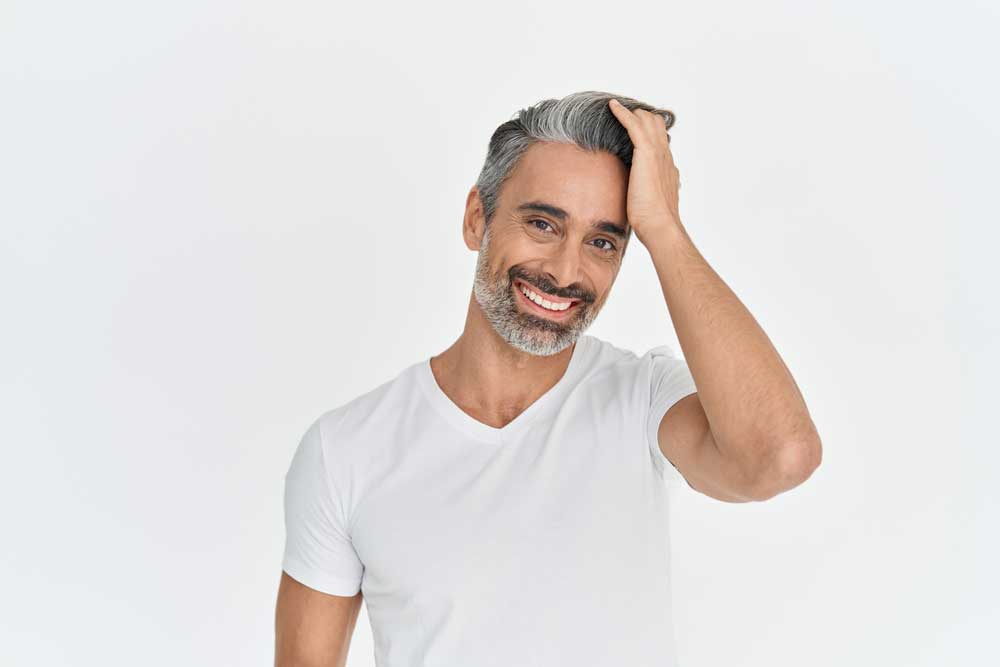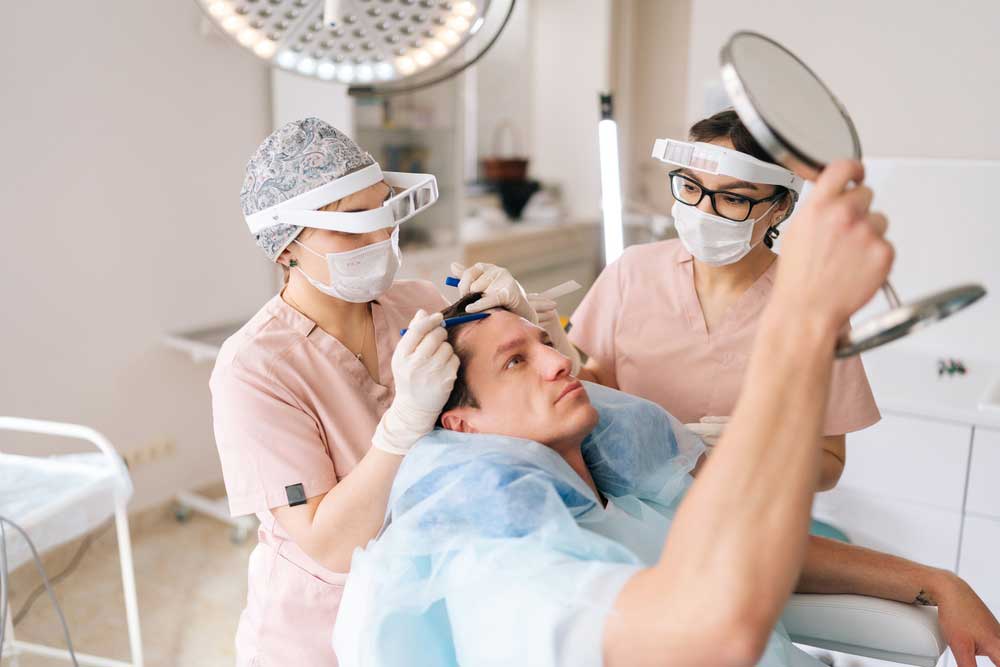With the onset of autumn, you might find more hair on your hairbrush, in the bathroom, and even on your clothes. If you are facing this problem, then you are not alone. Hair experts say that women experience increased hair fall during late fall and winter.
This blog will go into detail about seasonal hair loss in autumn and effective hair loss treatment in Freehold.
What Causes Seasonal Hair Loss in Autumn?
There are innumerable causes of hair loss during this time of the year. Apart from temperature shifts, hormone-related and evolutionary factors also contribute to hair loss in autumn.
These factors include hormonal imbalances and temporary hair loss, known as Telogen Effluvium, characterized by significant hair shedding a few months after a triggering event. With autumn, this can be linked to stress, photoperiod (day length) changes, and temperature changes. Lifestyle changes are also responsible to an extent for seasonal hair loss.
Is Seasonal Hair Loss Normal?
Yes, seasonal hair loss is a normal and natural phenomenon. Temperature change stresses your scalp and hair follicles, causing hair loss. Shedding 80-100 strands of hair daily is expected in seasonal hair loss. However, a little attention goes a long way. Taking care of your tresses during the spring and fall can minimize seasonal hair loss.
How to Recognize Seasonal Hair Loss vs. Other Types of Hair Loss?
Hair loss and hair fall are matters of concern. However, you must understand that there is a difference between seasonal hair loss and other types of hair loss issues. As mentioned earlier, seasonal hair shedding during spring or autumn is expected due to numerous lifestyle, climatic, and hormonal factors.
Nevertheless, other reasons might contribute to hair fall or loss, such as underlying medical conditions, lifestyle issues, lack of proper diet, excessive stress, etc., leading to regular and abnormal hair fall. Frequent hair falls will lead to hair thinning and even baldness if not treated. To combat normal and uncommon hair loss issues, seek proper treatment.
See Also: Understanding the Leading Triggers of Hair Loss
Connection Between Nutrition and Seasonal Hair Loss
Consuming a balanced diet rich in greens and protein is great in winter. Include curd, lean meats, soy, fish, and other rich protein sources to minimize hair loss and promote hair growth.
Furthermore, you must drink sufficient water to hydrate your body during these dry winters. Well-hydrated hair is healthy, shiny, and free of split ends.
The Autumn Hair Care Routine You Need
Following a hair care routine for autumn will be highly effective in minimizing hair loss. Here are some tips you can follow:
- Maintain a balanced diet rich in protein and fiber.
- Oil massages lend moisture to your dry scalp, a great way to minimize hair loss in autumn.
- Invest in good quality hair care products that fit your scalp type (dry, oily, sensitive).
- Drink plenty of water to keep your body hydrated.
- Refrain from taking a hot shower.
- Avoid using hair styling products like dyes, heat styling, etc.
How Does Autumn Weather Affect Hair Health?
Weather plays a significant role in determining hair health. Autumn can make your hair dry and frizzy and more susceptible to breakage due to decreased moisture in the air. Rain and humidity, on the other hand, can lead to oily & itchy scalp and dandruff. Temperature fluctuations like these cause the hair to expand and contract, leading to frizz, tangling, and breakage. Therefore, it is important to maintain scalp and hair health by protecting them from environmental aggressors and maintaining moisture retention.
Natural Remedies for Seasonal Hair Loss?
Yes, there are many natural remedies to combat seasonal hair loss. Some of them are:
- Applying onion juice on the scalp
- Massaging the scalp with fenugreek paste
- Scalp massage with jojoba oil
- Massaging with coconut oil
- Consuming flax seeds
- Using an egg hair mask
- Applying green tea on the scalp
- Massaging fresh aloe vera gel on the scalp
How do Lifestyle Factors Affect Seasonal Hair Loss?
Lifestyle factors have a significant impact on hair health. Poor lifestyle, not having a balanced diet, lack of sleep, consumption of alcohol, smoking, sedentary lifestyle, etc. can contribute to hair loss. Stress is also a significant contributor to hair loss.
See Also: Hair Loss in Summer – Effective Natural Ways to Protect Your Hair
Combat Seasonal Hair Loss at New Jersey Hair Restoration Center
Seasonal hair loss is a common phenomenon many people go through, and proper hair and scalp hair can help combat seasonal hair loss. However, if seasonal hair loss gets out of hand, you must seek hair loss treatment in NJ. If the hair loss problem is not seasonal, you might need hair loss surgery in NJ to rectify the situation from the roots.
New Jersey Hair Restoration Center is one of Freehold’s best places for hair loss treatment. The center offers services like FUE and FUT Hair Transplants, PRP Therapy, Medical Management for Hair Loss, Laser Cap, and Pepfactor. Book your consultation with us today.


